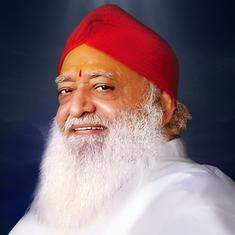The most interesting story of English trade (non-academic) publishing in India is not in any of the thousands of books it produces every year. It is in the weekly charts of bestsellers, which go down into the top 50 books sold.
Here are ten things you probably didn’t know about the sales of books that you read and buy regularly.
1. The books on the charts stay on their regular trajectory for about 140 successive weeks. Then Chetan Bhagat launches a new novel. In that very first week, Bhagat’s book almost ‒ not quite, but almost ‒ sells as much as the rest of the top 500. Certainly more than the rest of the top 400.
2. Remember those pop-corn romances about girlfriends who died on their boyfriends, girlfriends who ditched poor boyfriends for richer ones, girlfriends who proved as fickle as the Sensex? Those books from a few years ago that the snobs hated and so many school- and college-students loved. They still rule the charts. Week after week after indefatigable week. The same titles, not new ones in the same genre.
3. Grammar books sell really, really well. Always have, and it seems they always will. Why, you may wonder, when you read anything written by their buyers.
4. Make a movie out of a book and it shoots up the charts. One day, not too many people have heard of a book, the next day there’s a Hollywood or Bollywood movie made out of it, and the third day everyone’s falling over to buy it. Not when it comes to TV, though. Some of the most popular TV series on American or British TV, which Indians can’t wait to download and watch, are based on terrific books. Which seldom sell enough to make it to the charts.
5. Take No. 2 above and replace romances with inspirational books. Same story. Remember those pathbreaking books that first told you that you must live worthwhile lives but if you can’t, the universe will still conspire ‒ and the seagull will still inspire ‒ to make your dreams come true? How can you not, when you’re still buying them, years and decades after they were originally published. You’re buying self-help books copiously too, by the way. Although there’s something contradictory about considering self-help from a book.
6. Take No. 5 and replace with mythological fiction. (Not the kind that’s being foisted on us by spurious historians.) But the me-toos have sunk without a trace. It’s only the trendsetters who command steady purchases every week. Writing about human versions of Hindu gods is no guarantee of success. There’s something about Amish.
7. Fifty Shades of Grey is still up there. Not so when it comes to other self-proclaimed erotica or even borderline pornography.
8. Literary novels don’t sell. From anywhere in the world. Unless it’s One Hundred Years of Solitude or To Kill a Mockingbird. Are they taught as academic texts? Indian fiction that does not aim squarely at the mass market is extremely successful in fulfilling its intent. It seldom sells large enough numbers to make it to the charts. No wonder sales heads at publishing companies look away hastily when editors boast of the fantastic new literary novel they’ve published.
9. Mein Kampf is still in the Top 500. Sill crazy after all these years.
10. Missing in action: Poetry. Translated books. Literary non-fiction. In other words, the best-produced books in the business.
What books are people buying in India? Ten things that will astonish you
From India's bestseller charts: What sells, what doesn’t, what’s new, what’s old.










